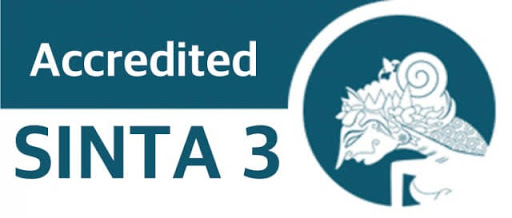Is mathematics created or discovered? Pre-service teachers' perception on a classic enigma
DOI:
https://doi.org/10.12928/ijei.v2i1.4419Keywords:
classic enigma of mathematics, philosophy, pre-service teacherAbstract
There are many classic questions about the nature of mathematics which have been an endless debate among philosophers. One of them is about whether mathematics is created or discovered. This research aims to find out the pre-service mathematics teachers perception about the classical enigma of mathematics after joining the course of history and philosophy of mathematics education. It was a descriptive qualitative research involving 45 pre-service mathematics teachers in their first-year training. We collected the data using questionnaire and then deepened the findings using semi-structured interview. The results suggest that 40% of the respondents believed that mathematics is created, while the rest 60% believed that mathematics is discovered. The two claims have their basic reasoning in the perspective of the respondents. Those who believed that mathematics is created argued that mathematics exists because of human activities. Therefore, it will never be founded if it is not created first. Meanwhile, those who believed that mathematics is discovered tended to argue that whether or not there is human activities to prove the mathematics phenomena, it is already there as the God created it. Thus, human just discovered it, not create it. Both arguments are interesting and have a potential impact to the mathematics education practice.
References
Ernest, P. (1991). The Philosophy of Mathematics Education. Routledge: Taylor and Francis.
Hersh, R. (1997). What is Mathematics, Really? New York: Oxford University Press.
Hudson, R. A., Creager, M. A., Burgess, A., & Gerber, A. (2020). The nature of mathematics and its impact on K-12 education. Critical Questions in STEM Education (pp. 45-57). Springer, Cham.
Prabowo, A. (2009). Postulat kesejajaran Euclid dalam tinjauan sejarah. Jurnal Ilmiah Matematika dan Pendidikan Matematika, 1(2), 67-91.
Simamora, L. (2015). Pengaruh persepsi tentang kompetensi pedagogik guru dan kebiasaan belajar siswa terhadap prestasi belajar matematika. Formatif: Jurnal Ilmiah Pendidikan MIPA, 4(1).
Siskawati, E., Rochmad, R., & Isnarto, I. (2021). Teka-teki klasik filsafat matematika. PRISMA, Prosiding Seminar Nasional Matematika (vol. 4, pp. 189-193).
Sumartini, T. S. (2020). Self-efficacy calon guru matematika. Mosharafa: Jurnal Pendidikan Matematika, 9(3), 419-428.
Suyitno, H. (2014). Pengantar Filsafat Matematika. Semarang: Penerbit FMIPA Universitas Negeri Semarang.
White-Fredette, K. (2010). Why not philosophy? Problematizing the philosophy of mathematics in a time of curriculum reform. The Mathematics Educator, 19(2), 21–31.
Downloads
Published
How to Cite
Issue
Section
License
Copyright (c) 2021 Vita Istihapsari, Rochmad Rochmad, Isnarto Isnarto

This work is licensed under a Creative Commons Attribution-ShareAlike 4.0 International License.
Authors who publish with this journal agree to the following terms:
- Authors retain copyright with the work simultaneously licensed under a Creative Commons Attribution License that allows others to share the work with an acknowledgement of the work's authorship and initial publication in this journal.
- Authors are able to enter into separate, additional contractual arrangements for the non-exclusive distribution of the journal's published version of the work (e.g., post it to an institutional repository or publish it in a book), with an acknowledgement of its initial publication in this journal.
- Authors are permitted and encouraged to post their work online (e.g., in institutional repositories or on their website) prior to and during the submission process, as it can lead to productive exchanges, as well as earlier and greater citation of published work (See The Effect of Open Access).




